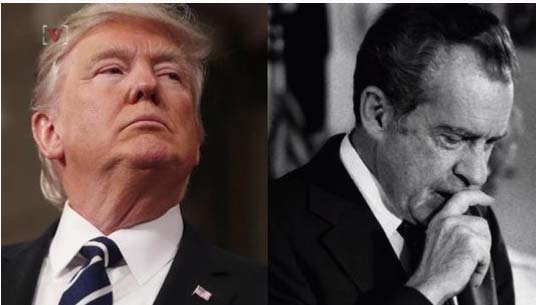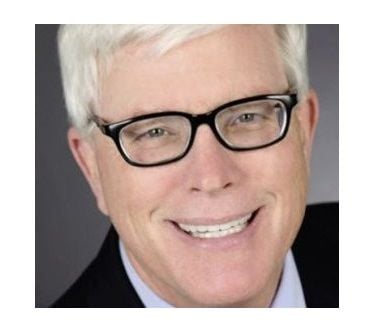
Very few people remember Watergate, or at least correctly. Half of the country wasn't even born when President Richard Nixon resigned his office. A lot of us who were alive were in high school or younger and we were far more interested in other things than the Watergate hearings.
Even those who think they know the story are often wrong. Self-serving voices - think former White House counsel John Dean and former director of the Nixon Library Tim Naftali - are eager for air time as an impeachment vote draws near. Meanwhile, George Clooney is making a "Watergate series," and other "Watergate" projects are popping up as the 50th anniversaries of the events leading to Nixon's resignation approach.
While many in the foreign policy establishment long for anyone approaching a Nixon and his handling of China, the Soviet Union and the Yom Kippur War, the young domestic press doesn't really have a grip on what happened and why from 1972-1974.
One of the hats I wear is as president of the Nixon Foundation. Because I did know Nixon, it's tempting to hold forth on Watergate, but I don't hold myself out as an expert in Watergate, so convoluted is the story and voluminous the cast of characters. There are, however, five honest-to-G od experts on Watergate who know the story cold. They are all very much alive, very much accessible, and genuine authorities on what happened.
Dwight Chapin was special assistant to the president and then deputy assistant to the president, reporting to chief of staff H.R. Haldeman. Chapin has rebounded from a Watergate conviction to a life of success and significance. He's for a first-person account of operations inside the Nixon White House.
Lawyer Geoff Shepard stuck with Nixon's legal team to the end. A brilliant lawyer and White House Fellow, Shephard has voluminous knowledge of every aspect of the impeachment proceedings as they occurred and documents for every day of the drama.
Frank Gannon and Ken Khachigian, both longtime aides, retreated to San Clemente, California, with former president and Mrs. Nixon in 1974, and, along with journalist Diane Sawyer, helped the then-exiled ex-president write his famed memoir. These two men have the tick tock of Nixon's impeachment embedded in their brains, along with much of American history on either side of Nixon's resignation on Aug. 9, 1974.
And, like me, as a young man Bob Bostock worked for Nixon, after the fall, but unlike me, he discussed Watergate with the former president, and in fact worked with him on the Nixon Library's exhibit that told Watergate through Nixon's eyes - the one that Naftali destroyed when he became the fourth custodian of a library that Nixon's friends paid for.
So there are five names, five experts on Watergate, who will know what it feels like to be on the 1600 Pennsylvania Avenue receiving end of the incoming of impeachment shelling. No story that references Watergate that doesn't quote one or more of them will be anything close to objective.
Keep the names I offered you close at hand. It they don't appear in the text of a story on Watergate or on screen when Watergate is being discussed, understand you are watching disfigured history.
Sign up for the daily JWR update. It's free. Just click here.
(COMMENT, BELOW)


 Contact The Editor
Contact The Editor
 Articles By This Author
Articles By This Author